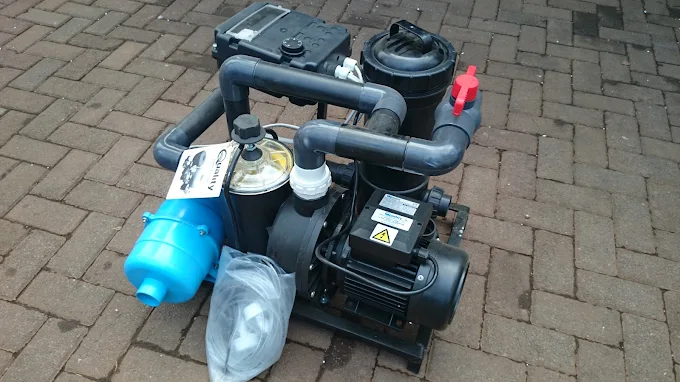
The manufacturing and industrial sectors are undergoing a rapid transformation driven by Industry 4.0 technologies, which blend physical and digital systems to optimize operations. One of the most significant advancements enabled by Industry 4.0 is predictive maintenance, a proactive approach that anticipates equipment failures before they occur. At the heart of this capability lies data analytics, which empowers businesses to harness vast amounts of machine and sensor data effectively.
Industry 4.0 Strategy Consulting Services play a crucial role in guiding organizations to implement these data-driven predictive maintenance solutions effectively. This blog explores how data analytics integrates with Industry 4.0 strategies to revolutionize maintenance practices, reduce downtime, and enhance operational efficiency.
Understanding Industry 4.0 and Predictive Maintenance
Industry 4.0 represents the fourth industrial revolution, characterized by the convergence of cyber-physical systems, Internet of Things (IoT), cloud computing, and artificial intelligence (AI). This transformation enables the creation of smart factories where machines communicate seamlessly and processes self-optimize.
Predictive maintenance is a strategy that uses real-time data and analytics to predict when equipment might fail or require servicing. Unlike traditional reactive or scheduled maintenance, predictive maintenance minimizes downtime and maintenance costs by servicing machines only when necessary, based on data insights.
Importance of Data Analytics in Industry 4.0
Data is the foundation of Industry 4.0. Sensors embedded in machinery continuously generate large volumes of data, including temperature, vibration, pressure, and operational metrics. However, raw data is not valuable without analysis.
Data analytics involves collecting, processing, and analyzing this data to uncover patterns, trends, and anomalies. Advanced analytics techniques such as machine learning (ML) and statistical modeling enable:
- Early detection of equipment anomalies
- Accurate estimation of remaining useful life (RUL) of components
- Root cause analysis of failures
- Optimized scheduling of maintenance activities
By transforming raw data into actionable insights, data analytics ensures that Industry 4.0 solutions deliver measurable improvements in efficiency and reliability.
How Industry 4.0 Strategy Consulting Services Leverage Data Analytics for Predictive Maintenance
Industry 4.0 Strategy Consulting Services are vital in helping organizations develop and implement predictive maintenance strategies driven by data analytics. Their roles typically include:
- Assessment and Roadmapping: Evaluating existing maintenance processes and industrial infrastructure to identify data readiness and gaps.
- Technology Selection: Advising on suitable IoT sensors, data platforms, and analytics tools that align with business goals.
- Data Integration: Ensuring seamless aggregation of data from diverse sources such as PLCs, SCADA systems, and ERP platforms.
- Analytics Model Development: Designing predictive models using machine learning algorithms tailored to specific machinery and operational contexts.
- Pilot Programs and Scaling: Conducting pilot tests, measuring outcomes, and scaling predictive maintenance solutions across plants.
- Change Management: Supporting workforce training and process adjustments necessary for adopting predictive maintenance practices.
By leveraging their expertise, these consulting services reduce implementation risks and accelerate the value realization from Industry 4.0 initiatives.
Key Data Analytics Techniques Used in Predictive Maintenance
Predictive maintenance utilizes several advanced analytics methods, including:
- Descriptive Analytics: Provides historical insights on equipment performance and failure patterns.
- Diagnostic Analytics: Investigates the root causes of past failures.
- Predictive Analytics: Uses machine learning and statistical models to forecast equipment failures before they happen. Algorithms such as regression analysis, neural networks, and decision trees are common.
- Prescriptive Analytics: Suggests optimal maintenance actions based on predictive outcomes to minimize disruption and costs.
Combining these analytics layers creates a comprehensive predictive maintenance system that adapts dynamically to operational changes.
Benefits of Integrating Data Analytics into Predictive Maintenance Strategies
Organizations adopting data analytics-powered predictive maintenance enjoy multiple advantages:
- Reduced Downtime: Early detection of faults prevents unexpected breakdowns.
- Lower Maintenance Costs: Maintenance activities are performed only when necessary, avoiding unnecessary labor and parts replacement.
- Extended Equipment Lifespan: Timely interventions prevent severe damage, prolonging asset life.
- Improved Safety: Identifying potential failures reduces risks of accidents and hazards.
- Increased Productivity: Equipment uptime and operational efficiency improve significantly.
- Better Resource Allocation: Data-driven insights optimize inventory management for spare parts.
These benefits collectively contribute to higher profitability and competitiveness.
Challenges in Implementing Data-Driven Predictive Maintenance
Despite its benefits, adopting predictive maintenance through data analytics comes with challenges:
- Data Quality and Availability: Incomplete or noisy sensor data can reduce model accuracy.
- Integration Complexity: Combining data from heterogeneous sources requires advanced integration techniques.
- Skill Gaps: Organizations may lack data science and Industry 4.0 expertise.
- Cost of Implementation: Initial investments in sensors, data infrastructure, and analytics tools can be high.
- Change Management: Shifting from reactive to predictive culture requires significant organizational buy-in.
Industry 4.0 Strategy Consulting Services help mitigate these challenges by providing end-to-end expertise, ensuring smooth transitions.
Real-World Applications and Case Studies
Many manufacturing leaders have successfully leveraged data analytics for predictive maintenance:
- Automotive Industry: Using vibration and temperature data analytics to predict failures in assembly robots, reducing downtime by up to 30%.
- Energy Sector: Monitoring turbine health through sensor data to forecast maintenance needs, increasing reliability and reducing costs.
- Pharmaceutical Manufacturing: Implementing predictive models for critical equipment to ensure continuous compliance and reduce batch failures.
These success stories demonstrate how Industry 4.0 Strategy Consulting Services tailor data analytics solutions to industry-specific needs.
Conclusion
Data analytics is a cornerstone of Industry 4.0-enabled predictive maintenance, unlocking unparalleled operational efficiencies and cost savings. However, realizing its full potential requires a well-crafted strategy that integrates technology, data, and organizational change.
By partnering with expert Industry 4.0 Strategy Consulting Services, businesses can design and implement robust predictive maintenance frameworks that transform maintenance from a reactive burden into a strategic advantage.
FAQs
Q1: What types of data are essential for predictive maintenance?
Key data types include sensor readings (vibration, temperature, pressure), machine logs, operational metrics, and environmental conditions.
Q2: How does Industry 4.0 enhance traditional maintenance?
Industry 4.0 introduces connectivity, real-time data, and AI-driven analytics, enabling proactive, data-driven maintenance rather than scheduled or reactive approaches.
Q3: Can predictive maintenance be applied to all types of equipment?
While broadly applicable, the effectiveness depends on sensor availability, data quality, and the complexity of equipment.
Q4: How long does it take to implement a predictive maintenance solution?
Implementation time varies from a few months for pilots to a year or more for full-scale deployment, depending on the organization’s size and readiness.
Q5: What role do consulting services play in Industry 4.0 initiatives?
Consulting services provide expertise in strategy development, technology selection, data integration, analytics modeling, and change management to ensure successful Industry 4.0 adoption.






